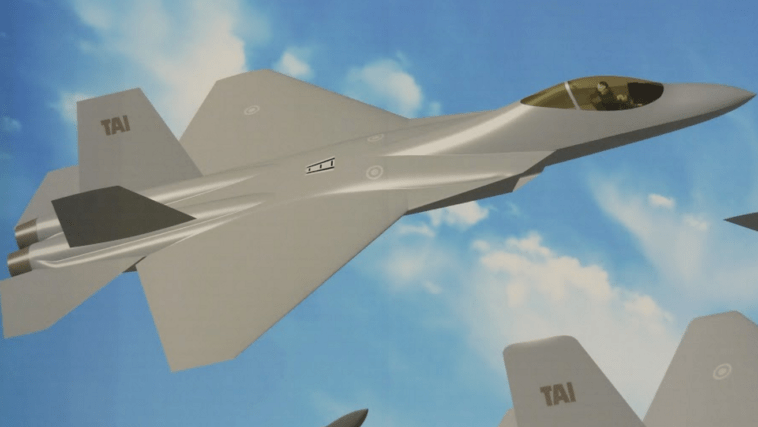Pakistan has always preferred peace and friendship when dealing with its neighbors. Over the time, Pakistan has developed strong diplomatic relations with most of them, save for India. One such country that maintains positive relations with Pakistan is Turkey.
Turkey stands as one of the closest allies of Pakistan. We have developed strong cultural, historical and military relations with Turkey. Both countries seek to develop their economies and strengthening their close ties is beneficial, both strategically and economically. To further the positive relation, Pakistan has worked with Turkey on many important projects, and the result of that collaboration has greatly benefited both countries. One such collaboration is in the form of an active military project, in which both Turkey and Pakistan are developing the fifth generation fighter jet, TF-X.
The CEO (Chief Executive Officer) at Turkish Aerospace Industries, Temel Kotil, shared the news at a program ‘Aj Rana Mubashir Ke Sath’ that aired at Aaj News. The current collaboration is the result of the ongoing diplomatic relations that have been grooming for a while. In 2019, TAI established its office in National Science and Technology Park which is Pakistan’s first technology park.
Shedding light on the ongoing project, Air Marshal Dr Rizwan Riaz, Pro-Rector Research, Innovation and Commercialization (RIC) at National University of Science and Technology (NUST) said, “This is the fifth generation-fighter aircraft in which Pakistan and Turkey are collaborating. The way it works is that the team, which is leading the programme in Turkey, offloads smaller pieces of work to the students and researchers here. Components of the project are broken into smaller tasks, after which they are integrated.”
Nust has a standing history of working on such projects. The university worked on similar projects with PAF.
Commenting on the practicality of the scope of work done on this project, Temel Kotil said that he and his company are bringing products to Pakistan from Turkey. This approach is far more practical than inviting Pakistani engineers to Turkey. This is not the first time TAI is collaboratively working with Pakistani institutions. Last year, TAI signed a contract with NESCOM (National Engineering and Science Commission) to produce a military drone named Anka UAV.
Collaborative projects like these are the indication of a fostering relationship between Pakistan and Turkey. It indicates that both countries are willing to collaborate in all manners possible to boost their economy and friendship.





